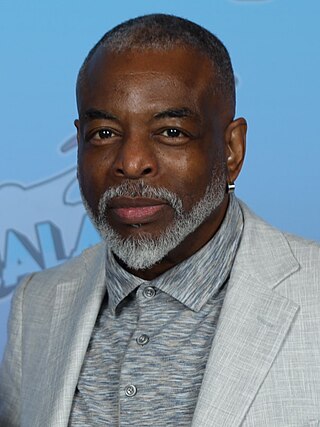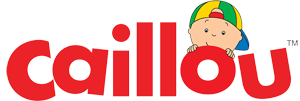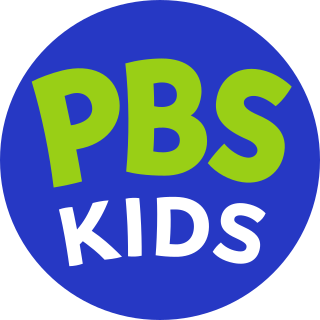| Reading Rainbow | |
|---|---|
 | |
| Genre | Children's television series Reading |
| Created by |
|
| Presented by | LeVar Burton |
| Theme music composer | Steve Horelick Dennis Neil Kleinman Janet Weir |
| Composer | Steve Horelick |
| Country of origin | United States |
| Original language | English |
| No. of seasons | 21 |
| No. of episodes | 155 (list of episodes) |
| Production | |
| Executive producers | David McCourt Twila Liggett LeVar Burton Tony Buttino (1983–1998) |
| Running time | 30 minutes |
| Production companies | Lancit Media Productions (1983-2001) RCN Entertainment (2002) On Screen Entertainment (2004-2006) WNED-TV |
| Original release | |
| Network | PBS (1983–1999) PBS Kids (1999–2006) |
| Release | July 11, 1983 [1] [2] – November 10, 2006 [3] [4] |
Reading Rainbow is an American educational children's television series that originally aired on PBS and afterward PBS Kids from July 11, 1983 [1] [2] to November 10, 2006, with reruns continuing to air until August 28, 2009. 155 30-minute episodes were produced over 23 seasons. Before its official premiere, the show aired for test audiences in the Nebraska and Buffalo, New York markets (their PBS member stations, the Nebraska ETV [now Nebraska Public Media] and WNED-TV, respectively, were co-producers of the show).
Contents
- Show details
- Theme song and opening sequence
- Final years as a TV series (2005–2006)
- Relaunch as an app
- Announcement and early developments (2010–2014)
- Kickstarter revival campaign and aftermath (2014–22)
- Accolades
- Animation producers
- Feature Book filming
- Guest readers and contributors
- Writing and illustrating contest
- References
- External links
The purpose of the show was to encourage a love of books and reading among children. In 2012, an iPad and Kindle Fire educational interactive book reading and video field trip application was launched bearing the name of the program.
The public television series garnered over 200 broadcast awards, including a Peabody Award and 26 Emmy Awards, 10 of which were in the "Outstanding Children's Series" category. [5] The concept of a reading series for children originated with Twila Liggett, PhD who in partnership with Cecily Truett Lancit and Larry Lancit, at Lancit Media Productions in New York created the television series. The original team also included Lynne Brenner Ganek, Ellen Schecter, and host LeVar Burton. The show's title was conceived by an unknown intern at WNED. [6]
Each episode centered on a topic from a featured children's book that was explored through a number of on-location segments or stories. The show also recommended books for children to look for when they went to the library.
After the show's cancellation on November 10, 2006, reruns aired until August 28, 2009, when it was removed from the schedule. [3] At the time, it was the third-longest running children's series in PBS history, after Sesame Street and Mister Rogers' Neighborhood . [note 1] It was the first PBS children's show to be broadcast in stereo. On June 20, 2012, the Reading Rainbow App was released for the iPad and, within 36 hours, became the #1 most-downloaded educational app in the iTunes App Store. [7] Developed by LeVar Burton and his company, RRKIDZ, the app allows children to read unlimited books, explore video field trips starring Burton, and earn rewards for reading. On the week of July 11, 2013, Reading Rainbow celebrated its 30th anniversary. [8]
In May 2014, a Kickstarter campaign was launched to raise funds to make the app available online and for Android, game consoles, smartphones, and other streaming devices along with creating a classroom version with the subscription fee waived for up to 13,000 disadvantaged classrooms. The effort met its initial fundraising goal of $1,000,000 in 11 hours, [9] and ended a few days later at $5,408,916 from 105,857 backers. [10] This campaign led to the launch of Skybrary by Reading Rainbow, a web-based expansion of the Reading Rainbow app experience. [11]
Due to a legal dispute, licensing of the Reading Rainbow brand was revoked from RRKidz in October 2017, and all its platforms (including Skybrary)[ citation needed ] were rebranded to LeVar Burton Kids. [12]
An interactive revival titled Reading Rainbow Live debuted on Looped in March 2022.












